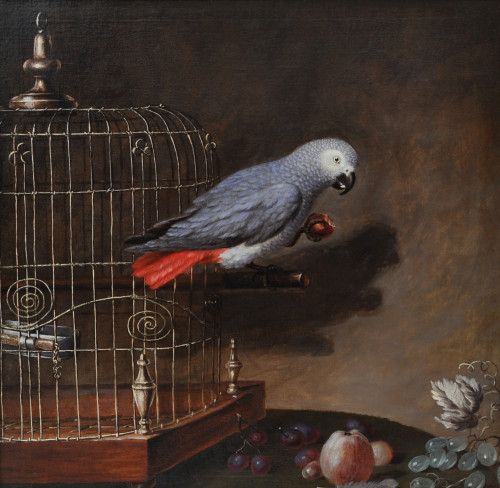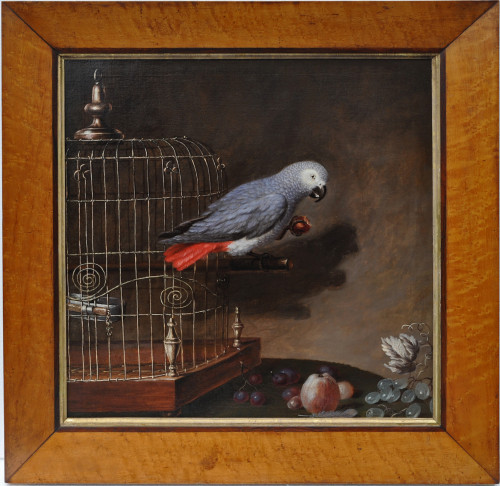Breaking from the Covert
Breaking from the Covert
184466
JOHN ALFRED WHEELER
1821-1903
English School
Breaking from the Covert
Oil on board, signed with monogram
9 x 15 ins
23 x 38 cms
John Alfred Wheeler was born at Andoversford, near Cheltenham, in 1821 and was the son of a stone-cutter. He was to become one of the most prolific and successful horse and animal painters of his day.
At the age of nineteen, Wheeler is recorded as serving as a private in the 2nd Queen's Corps, which gave him a good opportunity to study horses at close quarters. Due to ill health he was discharged in 1842 and married that same year, living in Cheltenham initially, but later moving to Bath.
He established himself as an artist making a name for himself as a painter of portraits of horses and dogs as well as racing and hunting scenes. His early works include several military pictures reflecting the time that he also served in the North Somerset Yeomanry as a trumpeter and he painted a picture of the regiment in 1854.
However, sensing that he needed to be nearer London and his wealthy patrons, he moved to Hanwell in 1877 where he built a house, which he named Bath Villa, and it was shortly after settling there that he painted the large picture "The Beaufort". This was a significant work, measuring 90 by 168 inches and portraying about 130 figures as well as many horses and hounds.
This was followed the next year by another large picture, "The Meet of the Coaching Club, London" which was subsequently produced as a print, selling for 15 guineas each. His success as an artist was established and he had a number of excellent patrons including the Dukes of Portland, Westminster, Hamilton, Rutland and Beaufort, the Earls of Caithness and Roseberry, Baron Rothschild and other titled and landed gentry.
His output was considerable and for his commissioning clients he produced fine hunting scenes, equestrian portraits from both the hunting and racing worlds and several animal paintings, dogs in particular. The latter were finely painted hound, terrier and, more rarely, retriever portraits. With minute brushstrokes and his signature highly polished finish, the overall effect is almost photographic in quality, particularly when done on millboard. Another favourite of his was screens with several painted panels depicting various facets of sporting and equestrian life.
He produced "A Handbook of Anatomy for Students of the Fine Arts" and this was illustrated with pictures of the human figure.
Like his son Alfred, with whom his work is sometimes confused, he often painted on board or panel as well as on canvas. Wheeler had two sons, James Thomas and Alfred and grandsons John Frederick Wheeler and Walter Herbert Wheeler who continued the family painting tradition.
Bibliography:
The Dictionary of Victorian Painters - Christopher Wood
The Dictionary of British Equestrian Artists - Sally Mitchell
Dog Painting, The European Breeds - William Secord
Dictionary of British Animal Painters - J. C. Wood
1821 - 1903
Oil on board
England
signed with monogram
RELATED ITEMS






















